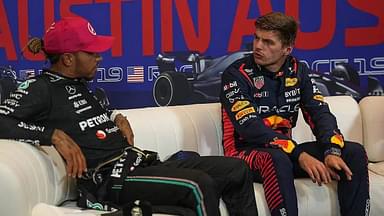Earlier this year, Motorsport Magazine listed the top 100 drivers of all time based on several on and off-track factors. Besides racing abilities and records, the publication also looked at the drivers’ intangible traits such as intelligence, ethical values, and their sheer impact on motorsport. Per those benchmarks, the two seven-time World Champions of F1 — Lewis Hamilton and Michael Schumacher — couldn’t top this list.
Despite many considering them GOATs of F1, Motorsport Magazine ranked Hamilton second and Schumacher seventh in their list. Meanwhile, it was two-time F1 world champion Jim Clark who was chosen as number one.
Today we remember the great Jim Clark on the 50th anniversary of his death
25 wins from 72 starts
Two world championships (1963, 1965)
Most Grand Slams (8) in F1 history
A true legend of #F1 pic.twitter.com/pMkipmU18C
— Formula 1 (@F1) April 7, 2018
Now, there has been a long-drawn debate about comparing legendary champion drivers from the 1950s and 1960s to the modern legends from the 2000s and 2010s. While Hamilton and Schumacher have broken almost every record in F1 in the modern day, drivers like Clark, Juan Manuel Fangio, Jackie Stewart, and many of their peers in the ’50s, ’60s, and ’70s were equally supreme.
Based on talent, the difficulty of racing with a high risk of death, and the actual on-track achievements across various disciplines, Motorsport Magazine seemed to have chosen Clark as the top driver from the list of 100 drivers who raced from 1924 to 2024.
From 1962 to 1966, Clark was on top of his game in the pinnacle of motorsport, besides also winning the Indianapolis 500 in 1965. He won the F1 world championship twice in ’63 and ’65 and became a cult legend, driving for Lotus. Clark was also one of the first drivers to drive with the Ford DFV engine in 1967.
Had he not passed away during an F2 race in Germany in 1968, Clark could’ve achieved more success not just in F1, but in other disciplines too.
While Hamilton, Schumacher, and other legends like Ayrton Senna (ranked third), Juan Manuel Fangio (ranked fourth), Alain Prost (ranked eighth), and Stewart (ranked ninth) also have had a similar impact, it is very subjective to distinguish between them and Clark and rejig that order.
The modern-day GOAT debate ft. Hamilton and Schumacher
Setting aside the champions of yesteryear, it is often challenging to determine whether Hamilton or Schumacher is the more legendary driver in F1. With both having similar records and the same number of world championships, a deeper examination is needed to compare them from various perspectives.
It could be the magnitude of their dominance or the number of close title battles or Grands Prix they have won from an unfavorable situation.
Ferrari veteran Jock Clear once tried to contrast the two seven-time world champions. Clear mentioned how Schumacher often had to work extra hard to believe that he could drive “faster” than his opponent.
Lewis Hamilton vs Michael Schumacher comparison after 91 wins.
These stats are insane pic.twitter.com/cFAqgFydkX— Stefanie (@fastpitstop) April 30, 2022
It was more of a mindset thing that the German relied more on tangible actions to improve himself than to have a lot of self-belief and back his raw abilities. Hamilton, on the contrary, backs himself. Clear said, “You never, ever, need to build his confidence back up; it never wavers.”
Nevertheless, it will always be challenging to pinpoint who is the better racer among the two or the legends from the ’50s and ’60s. From an objective standpoint of statistics and records, it is impossible to declare one better than the other due to the differences in the machinery available to them.








